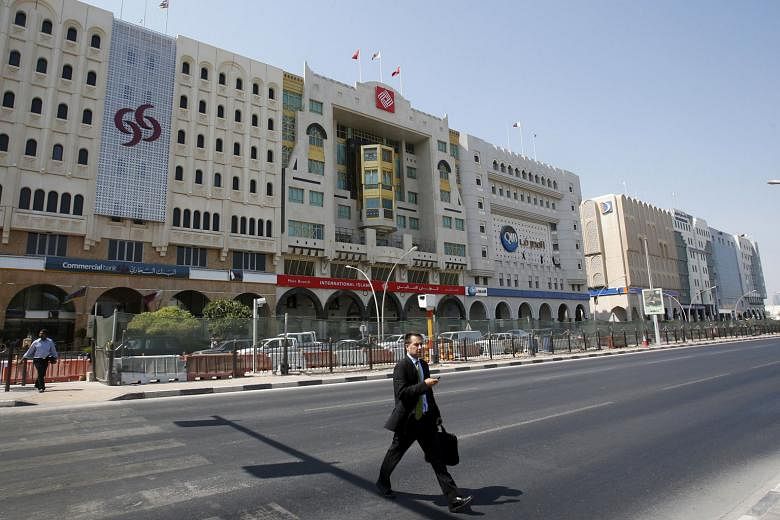DOHA • Credit cards on the limit, huge bank borrowings and a struggle to repay loans: these are the personal debt problems of some Qataris despite the Gulf state's reputation for fabulous wealth.
Generous government salaries and free healthcare, funded by vast natural gas reserves in a country with only about 300,000 citizens, do not always mean healthy bank balances for ordinary Qataris.
Instead, they can come under intense social pressure to live way beyond their means, spending lavishly on everything from the latest smartphones and designer fashions to family weddings.
Now their problems are deepening as diving global energy prices mean even the Qatari welfare state is becoming less generous. Many are borrowing enormous sums from local banks to finance lifestyles they cannot afford, according to a study by Qatar University.
Widespread personal debt, while familiar throughout the Gulf where loosely regulated banks and extravagant living are commonplace, does not yet appear to threaten Qatar's overall financial system. Of the 75 per cent of families in debt - most owe more than 250,000 riyals (S$95,000), according to a 2014 Qatar National Development Strategy report - only a handful default on their loan payments, an offence punishable by prison.
But layoffs of some state workers and petrol price increases have refocused attention on indebtedness and the problems it could present to social cohesion if citizens start to press their relatives and the government heavily for help.
Over-indebtedness is a rising concern, likened to a "social curse" by Qatari commentators and a "fever spreading from house to house".
Part of the problem, some Qataris say, is that the economic boom during the era of high energy prices until mid-2014 rapidly pushed up standards of living - and expectations of what it means to be both wealthy and successful.
"You cannot have a bad watch on your wrist, a second-hand car, or an old telephone. You need to have the latest models so as not to appear poor," said former traffic policeman Mohammed al-Mari. "People end up pretending they have money just to keep up. There is this social pressure."
Besides a culture of extravagance, some decry Qatar's "welfare syndrome" that has led a generation to believe it can live carelessly and be bailed out by relatives or a paternalistic government.
The authorities have tried to raise awareness about the depth of the problem, launching a campaign titled "Debt is Disgraceful" in 2013 that saw donations collected to help pay money owed by debtors in prison or others threatened with criminal charges.
But some Qataris say absolving people of their debts sets an unhealthy precedent.
"If you remove a person's debt, you also absolve them of their personal responsibility," said Mr Mustafa al-Khamisi, who owns an audit firm. "That is really dangerous, because if you start eroding a person's responsibility towards society, you start eroding society itself."
REUTERS

